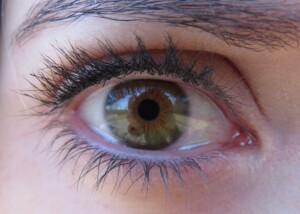
Do you hate laughing around people because it always makes your eyes water?
“I laughed so hard that tears rolled down my cheeks” is a common statement, but for some people, even a little laughing causes watery eyes – way too watery for their comfort, and enough for others to notice and comment on.
Maybe most of those folks who say that “tears rolled down” their cheeks are exaggerating, but there’s a definite number for whom this is a problem.
The way to prevent excessively watery eyes from laughing is not as simple as “laugh less” or “don’t laugh so hard.”
For some people, what would be considered a normal degree of laughter is all it takes to trigger the bothersome watery eyes – enough that they must wipe them, and enough for others to notice.
“This is a normal reflex and I am not aware of any way to prevent it,” says Kaushal M. Kulkarni, MD, board certified ophthalmologist and neuro-ophthalmologist in private practice in New York.
If you’ve had no trauma to the head, face or eyes, no illness, and you’ve always had this problem, then unfortunately, you’re stuck with it.
But can it EVER be caused by a medical condition?
“If you experience uncontrolled tearing when not laughing, or tearing associated with movement of the face, smiling or chewing, this could be abnormal and you should see an ophthalmologist,” says Dr. Kulkarni.
In the event of a medical cause, the excess tearing (known as epiphora) will likely be happening in just one eye.
“If someone has had prior damage to the facial nerve, either from Bell’s palsy, trauma or surgery, this can lead to aberrant regeneration of the nerve,” says Dr. Kulkarni.
“This means that when the nerve tries to heal and regrow, it sometimes regrows in an abnormal pattern and forms connections between areas and branches of the face that are not supposed to be connected.
“The facial nerve is responsible for moving the mouth while chewing and for tearing, so if an abnormal connection forms between these two areas, this can lead to tearing or epiphora when chewing.
“This can be treated with Botox to the lacrimal gland.” The lacrimal gland produces tears and is controlled by a nerve.
Quite simply, the signals are getting mixed, and you end up “crying” when all you’re doing is chewing, laughing or just smiling.
A bad, prolonged sinus infection can also spur aberrant regeneration to the facial nerve.










































